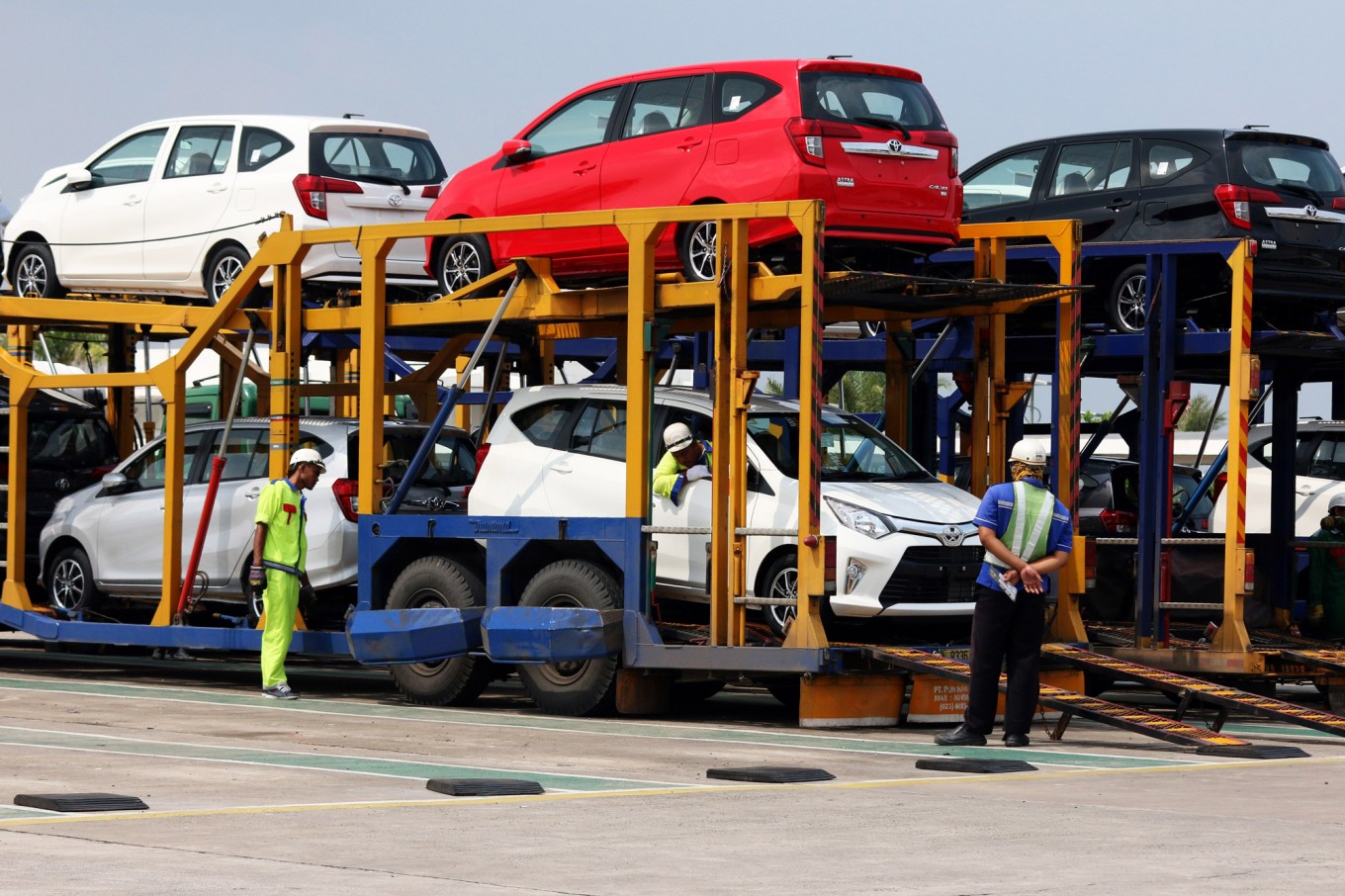Popular Reads
Top Results
Can't find what you're looking for?
View all search resultsPopular Reads
Top Results
Can't find what you're looking for?
View all search resultsCarmakers expect stagnating domestic sales this year
Carmakers expect to see stagnant sales in Indonesia this year amid high interest rates for automotive loans and low purchasing power.
Change text size
Gift Premium Articles
to Anyone
Carmakers expect to see stagnant sales in Indonesia this year amid high interest rates for automotive loans and low purchasing power.
The Indonesian Automotive Manufacturers Association (Gaikindo) has set a sales target of 1.1 million vehicles this year, unchanged from the 2018 target and lower than actual 2018 sales of 1.15 million vehicles.
“Automotive industry growth and sales may be stagnant this year, in line with the stagnating economic growth projection of 5 percent,” Gaikindo deputy chairman Jongkie Sugiarto said at a recent press briefing.
Other factors that might weigh on the industry are rupiah volatility, global economic uncertainty with the ongoing trade tensions between the United States and China as well as fluctuating oil prices.
Regarding Bank Indonesia’s seven-day repo rate, which was increased by 175 basis points in the course of last year to 6 percent, Jongkie said it was critical that the central bank not make drastic rate hikes, as that would significantly affect people’s ability to buy vehicles, 70 percent of which are sold through financing.
Gaikindo does not expect the zero-percent down payment policy for car purchases recently introduced by the government to boost sales. Jongkie said the financing companies would not deliberately provide the facility for all creditors, as the firms “have to manage their risks”.
He was referring to Financial Services Authority (OJK) Regulation No. 35/2018 on financing companies, which was issued on Dec. 27. Financing firms that have non-performing financing (NPF) ratios below 1 percent are allowed to disburse vehicle credit without any down payment.
The Indonesian Consumers Foundation (YLKI) has condemned the policy, saying it would not only worsen air pollution but also set a “debt trap” for low-income families, as a major portion of their income would be used to pay off the loans.
Meanwhile, the projection for vehicle production remains unchanged at 2.2 million units in 2019 amid stagnant domestic demand and uncertain export prospects, even though exports of completely built-up (CBU) vehicles increased by 14.4 percent to 264,553 units in 2018.
Nevertheless, automakers may find a ray of hope in the export market to offset stagnating domestic demand, he said, referring to the government’s plan to boost trade talks this year that would facilitate exports by lowering trade barriers.
Jongkie lauded the government’s initiative, particularly on opening market access to new destinations, which are mostly emerging markets, since automakers in Indonesia could not yet meet the stricter standards imposed by developed markets.
“That also makes environmentally friendly vehicles another challenge for us to comply, given the high environmental standards imposed by developed countries [...]. We have to follow the worldwide trend if we want to focus as an exporter,” he said.
Meanwhile, business consultant firm Frost & Sullivan posted a slightly higher automotive sales forecast at 1.2 million units for 2019.
“Customers are still willing to spend money [...]. The increase in government spending will also lead to more commercial spending,” Frost & Sullivan senior vice president of mobility, Vivek Vaidya, said. “This year will also see new model launches, which is bound to generate more demand and attract customers.”
Carmakers set to launch new models in Indonesia are Japan-based Suzuki with its Vitara Brezza and Chinese automaker Wuling with its Almaz SUV.
Vaidya said external disruptions, particularly the ongoing trade war between the US and China, could significantly impact Indonesia, as its sales of raw materials used in car production in China would be affected.
“[These] are some of the restraints in 2019 that will need to be overcome by positive consumer sentiment to stay on the growth path,” said Vaidya.










